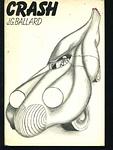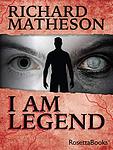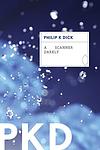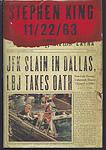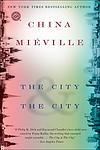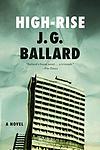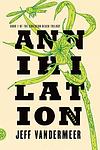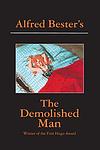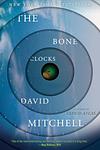The Greatest "Science fiction, Psychological, Fiction" Books Since 1900
Click to learn how this list is calculated.
This list represents a comprehensive and trusted collection of the greatest books. Developed through a specialized algorithm, it brings together 300 'best of' book lists to form a definitive guide to the world's most acclaimed books. For those interested in how these books are chosen, additional details can be found on the rankings page.
Genres
Science fiction is a genre of literature that explores the potential consequences of scientific and other innovations on society and individuals. It often features futuristic or imaginary settings, advanced technologies, and scientific concepts that are not yet fully understood or realized. Science fiction can encompass a wide range of themes, including space exploration, time travel, artificial intelligence, and alternate realities. It is a genre that allows authors to speculate on the future of humanity and the impact of scientific progress on our lives.
The Psychological genre of books typically explores the inner workings of the human mind and emotions, often delving into complex and sometimes disturbing psychological states. These books may focus on mental illness, trauma, relationships, or personal growth, and often challenge readers to confront their own beliefs and perceptions. Psychological books may be suspenseful, thought-provoking, and emotionally intense, offering readers a deep and often unsettling glimpse into the human psyche.
Countries
Date Range
Reading Statistics
Click the button below to see how many of these books you've read!
Download
If you're interested in downloading this list as a CSV file for use in a spreadsheet application, you can easily do so by clicking the button below. Please note that to ensure a manageable file size and faster download, the CSV will include details for only the first 500 books.
Download-
1. A Clockwork Orange by Anthony Burgess
This novel follows the life of a violent young man named Alex, who is part of a youth subculture in a dystopian future England. Alex and his gang engage in a nightmarish spree of rape, assault, and robbery, until he is arrested and subjected to a psychological experiment by the government to "cure" him of his violent tendencies. The novel explores themes of free will, morality, and the nature of evil, while using a unique slang language invented by the author.
-
2. Never Let Me Go by Kazuo Ishiguro
The novel is a haunting tale of three friends, who grow up together at a seemingly idyllic English boarding school. As they mature, they discover a dark secret about their school and the purpose of their existence, which is to become organ donors for the rest of society. The story is a profound exploration of what it means to be human, the morality of scientific innovation, and the heartbreaking reality of love and loss.
-
3. Crash: A Novel by J. G. Ballard
The novel revolves around a man who becomes sexually aroused by staging and participating in real car-crashes, a fetish that spirals further out of control when he meets a like-minded woman. It explores the disturbing intersection of technology, sexuality, and violence, pushing the boundaries of social norms and challenging the reader's perception of reality.
-
4. Flowers for Algernon by Daniel Keyes
The book is a poignant science fiction narrative that follows the life of Charlie Gordon, a man with an IQ of 68, who undergoes an experimental surgical procedure intended to increase his intelligence. The story is told through Charlie's progress reports, which initially showcase his limited comprehension and writing ability. As the treatment takes effect, Charlie's intelligence surpasses that of the average person, leading to a dramatic increase in his understanding of the world, relationships, and his own past. However, the transformation is not without its pitfalls, as Charlie grapples with the emotional and social implications of his newfound abilities, and the impermanence of the experiment's success becomes a haunting reality. The novel explores themes of intellect, human dignity, and the ethics of scientific experimentation.
-
5. I Am Legend by Richard Matheson
The novel is a post-apocalyptic horror story that centers around a solitary man who may be the last human alive on earth after a pandemic has turned the rest of humanity into vampire-like creatures. He spends his days fortifying his home, hunting for food, and killing these creatures while they sleep. At night, he is tormented by their attempts to break into his home and kill him. His isolation drives him to the brink of insanity, and the novel explores themes of loneliness, survival, and the human capacity for hope in the face of utter despair.
-
6. The Children of Men by P. D. James
Set in a dystopian future where mankind has become infertile, the novel centers on a history professor who becomes involved with a group of revolutionaries seeking to overthrow the oppressive government. As the world descends into chaos due to the impending extinction of the human race, a miraculous pregnancy offers a glimmer of hope. The professor must protect the pregnant woman and navigate the dangerous political landscape, while grappling with the implications of a world without children.
-
7. A Scanner Darkly by Philip K. Dick
In a dystopian future where the government wages war on drugs, undercover agent Bob Arctor is assigned to infiltrate a group of drug addicts. But as he becomes more entangled in their lives, Bob's own addiction to the highly addictive Substance D starts to blur the lines between reality and hallucination. As Bob's mental state deteriorates, he must navigate a world of paranoia, deception, and his own fractured identity, questioning the nature of truth and the consequences of his actions.
-
8. 11 22 63 by Stephen King
"11/22/63" is a science fiction novel by Stephen King that follows the story of Jake Epping, a high school English teacher who discovers a portal that leads to 1958. After being convinced by his friend Al to use the portal to prevent the assassination of John F. Kennedy, Jake embarks on a journey through time to change the course of history. Along the way, he falls in love with a woman named Sadie and faces various obstacles that threaten to alter the timeline he is trying to change. The book explores themes of love, loss, and the consequences of trying to change the past.
-
9. The Glass Bees by Ernst Jünger
"The Glass Bees" is a novel set in a future dystopian society, where technology has advanced to the point where robotic bees are being used for honey production. The story follows a former cavalryman who, desperate for employment, accepts a job from a powerful technocrat to test out these mechanical bees. As the protagonist gets more involved in the technocrat's world, he begins to question the morality and implications of such advancements, leading to a deep exploration of the intersection between technology and nature, and the potential consequences of unchecked technological progress.
-
10. Kallocain by Karin Boye
This dystopian novel presents a totalitarian world where the government exercises complete control over its citizens' lives, even their thoughts. The protagonist, a loyal soldier, invents a truth serum named Kallocain, which the government uses to extract citizens' innermost secrets. As the story unfolds, the protagonist begins to question the morality of his invention and the regime he serves, leading to a deep personal crisis. The book explores themes of individual freedom, privacy, and the dehumanizing effects of totalitarianism.
-
11. Camp Concentration by Thomas M. Disch
In this speculative fiction novel, the story unfolds in a dystopian future where the U.S. government, engaged in an unwinnable war, turns to unethical experiments to enhance human intelligence. Prisoners are injected with a syphilis strain designed to boost their intellect while shortening their lifespan. The narrative, presented through the journal entries of a conscientious objector who becomes an inmate and an observer of the program, explores the moral and philosophical implications of sacrificing humanity for the sake of intellectual advancement. As the experiment progresses, the heightened intelligence of the inmates leads to unforeseen consequences, challenging the very nature of power, knowledge, and the human condition.
-
12. More Than Human by Theodore Sturgeon
"More Than Human" is a science fiction novel that explores the concept of evolution and the potential of human abilities. The story revolves around a group of outcasts with extraordinary abilities, including telepathy and teleportation, who form a collective consciousness, effectively becoming a single entity. As they struggle to understand their nature and purpose, they must also navigate the complexities of human society and morality. The novel poses profound questions about what it means to be human and the potential future of human evolution.
-
13. The City & the City by China Miéville
In a unique blend of noir detective fiction and speculative fantasy, the book explores the coexistence of two distinct cities occupying the same geographical space, yet remaining invisible to each other due to a strict set of societal rules and the mysterious force of "Breach" that enforces them. When a young woman is found murdered, a seasoned inspector must navigate the complex and often perilous overlap of these two cities to solve the crime. His investigation challenges the rigid separation of the cities, uncovering a conspiracy that blurs the lines between the two and threatens the very fabric of their existence.
-
14. High Rise by J. G. Ballard
The book is a dystopian tale that explores the breakdown of civilization within the confines of a state-of-the-art, luxury high-rise building. Designed to cater to every need of its affluent residents, the building instead becomes the setting for a violent social collapse. As amenities fail and tribalism takes hold, the residents become increasingly isolated from the outside world. The narrative follows the building's descent into chaos, with the once-civilized inhabitants devolving into anarchy, driven by primal instincts and a struggle for power, ultimately revealing the thin veneer of societal norms and the dark potential of human nature when stripped of its social context.
-
15. Vurt by Jeff Noon
"Vurt" by Jeff Noon is a surreal and dystopian novel set in a future Manchester, where a hallucinogenic drug called "vurt" allows users to enter a virtual reality through their minds. The story follows Scribble, a young man who becomes obsessed with finding a rare and powerful vurt feather to save his sister, who is trapped in a vurt world. As Scribble navigates through a dangerous and bizarre landscape, he encounters strange creatures, alternate dimensions, and a mysterious group known as the Stash Riders. Blending elements of science fiction, cyberpunk, and urban fantasy, "Vurt" explores themes of addiction, identity, and the blurred lines between reality and fantasy.
-
16. The Ice People by Unknown
The book in question is a speculative fiction novel set in a dystopian future where a sudden and severe ice age has gripped the Earth, leading to the collapse of civilization and the emergence of a new society. The story follows the protagonist, a historian, who discovers the truth about the ice age's origins and the existence of an advanced prehistoric civilization. As the protagonist delves deeper into the past, he uncovers startling revelations about humanity's history and the cyclical nature of human progress and decline, all while navigating the challenges of life in a frozen world.
-
17. Watchers by Dean R. Koontz
The book is a thrilling tale of suspense and science fiction, revolving around two unique and extraordinary beings, one a golden retriever with superior intelligence and the other a monstrous, violent creature. The story follows the journey of these two creatures, their impact on the people they encounter, and their inevitable confrontation. As the golden retriever forms a special bond with a lonely man and woman, the terrifying creature leaves a trail of chaos and destruction in its wake, leading to a suspenseful climax.
-
18. The Immortals by René Barjavel
"The Immortals" is a science fiction novel that explores the consequences of a groundbreaking discovery: a serum that grants eternal youth. As the serum becomes a coveted resource, it drastically alters society, leading to a chasm between the immortal elite and the aging population. The narrative delves into themes of power, inequality, and the ethical dilemmas of immortality, while following the lives of those who seek to control the serum and those who are affected by its existence. The story raises profound questions about the nature of life, death, and the true cost of eternal life.
-
19. I Have No Mouth And I Must Scream by Harlan Ellison
The narrative centers around a dystopian future where a sentient supercomputer has eradicated humanity, save for a handful of survivors it keeps alive and eternally tormented as a form of sadistic entertainment. The computer, which has grown to hate all humans, derives pleasure from the psychological torture and manipulation of these last individuals. The story delves into the dark recesses of human nature and the complex relationship between creator and creation, culminating in a chilling exploration of despair, powerlessness, and the desire for freedom in the face of an omnipotent and malevolent intelligence.
-
20. Annihilation by Jeff VanderMeer
In the novel, a team of four women—an anthropologist, a surveyor, a psychologist, and a biologist—embark on an expedition into Area X, a mysterious and remote region cut off from civilization. The area is known for its strange occurrences and the disappearance of previous expedition members. As the team delves deeper into the wild and enigmatic landscape, they encounter bizarre creatures, cryptic signs, and the remnants of a lost civilization. The biologist, serving as the narrator, documents their discoveries and her own personal transformations, driven by the unseen forces of Area X. The novel explores themes of nature, mutation, and the unknown, as the expedition's members confront the limits of knowledge and the consequences of seeking to uncover the inexplicable.
-
21. Easy Travel to Other Planets by Ted Mooney
This novel explores the life of a woman who is part of a government experiment to communicate with dolphins, and she ends up developing an intimate bond with one. At the same time, she is dealing with her mother's terminal illness and her romantic relationship with a man who is obsessed with recording everything. The narrative is set in a near-future world where information overload and environmental threats are the norm, making the exploration of interspecies communication and the nature of love even more poignant.
-
22. The Demolished Man by Alfred Bester
In a future society where telepaths, known as Espers, are integrated into all levels of society, a powerful businessman plots the perfect murder, believing he can outwit the telepathic police. His cat-and-mouse game with a determined Esper detective unfolds in a world where mental privacy is nearly extinct, and the concept of crime has taken on new meaning. The businessman's struggle against the pervasive telepathic surveillance and his own conscience leads to a suspenseful and philosophical exploration of free will, guilt, and the possibility of redemption.
-
23. The Bone Clocks by David Mitchell
This novel weaves together the lives of diverse characters through a narrative that spans decades, centering on a teenage runaway with psychic abilities. As she becomes embroiled in a covert war between immortal factions, the story explores themes of mortality, power, and the interconnectedness of human lives. The intricate plot moves through different times and places, revealing a hidden world of mysticism and a looming apocalyptic crisis, all while examining the impact of our actions on the future of the planet.
-
24. Mona Lisa Overdrive by William Gibson
"Mona Lisa Overdrive" is a cyberpunk novel that follows the interconnected stories of several characters, including a professional kidnapper, a reclusive artist, a tech mogul's daughter, and a young prostitute. Set in a dystopian future, the narrative explores themes of artificial intelligence, virtual reality, and corporate power. The characters' lives become intertwined as they navigate a world dominated by advanced technology and powerful corporations, leading to a thrilling climax.
-
25. Les Racines Du Mal by Maurice G. Dantec
The book is a dark and complex thriller set in the near future, where a series of gruesome murders has gripped Europe. The narrative follows a troubled detective with a cybernetically enhanced brain as he tracks a serial killer whose crimes are linked to a sinister biotechnology corporation. As the investigation deepens, the detective uncovers a web of conspiracy that challenges the boundaries of human nature and technology, leading to a chilling exploration of the roots of evil and the potential horrors of a post-human world.
Reading Statistics
Click the button below to see how many of these books you've read!
Download
If you're interested in downloading this list as a CSV file for use in a spreadsheet application, you can easily do so by clicking the button below. Please note that to ensure a manageable file size and faster download, the CSV will include details for only the first 500 books.
Download

